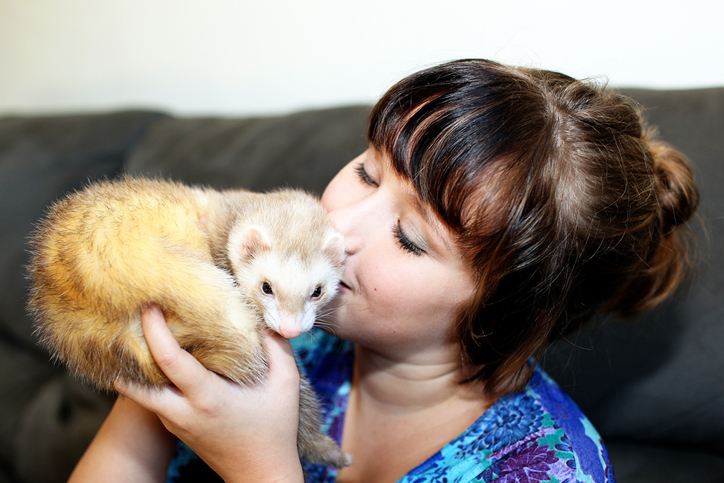
Why Ferret Vaccines are Important for Your Pet’s Health
If you have a ferret or you’re thinking about getting one, it’s important to learn everything you can about proper care for your pet. Even though ferrets are different from dogs and cats in a lot of ways, they still require a few vaccinations to keep them healthy and safe. In the article below, we’ll walk you through the most important reasons to have your ferret vaccinated in Boston, MA moving forward.
Ferrets Can Catch Distemper
Ferrets are capable of catching canine distemper—the same type of distemper your dog has probably already been vaccinated against. If your ferret comes down with this illness, they may have discharge from their eyes and may run a high fever. In severe instances, dehydration from this fever can lead to death.
Ferrets are given a distemper vaccination at three early stages: 8 weeks, 11 weeks, and 14 weeks. After that, the distemper shot is given annually to prevent your pet from being able to catch this potentially fatal disease.
Ferrets Can Contract Rabies
Even more serious than distemper, rabies is also capable of affecting ferrets. Ferrets who have rabies will either become excessively affectionate or excessively aggressive, and they will slowly become paralyzed as well. Within a few days of the first symptom, they will die, no matter what. There is no cure for rabies.
Additionally, this dangerous condition can be spread to humans from infected animals easily. Therefore, it’s crucial that you have your ferret vaccinated against rabies—for their safety as well as for yours. The rabies vaccination is given to ferrets at 12 weeks and then again annually after that.
Vaccines Include Annual Exams
Another good reason to keep up with your ferret’s regular vaccinations is the ability to have him checked out by the veterinarian at the same time. Since vaccination visits typically include annual exams as well, your vet can thoroughly examine your ferret and let you know if there are any concerning signs or symptoms in your pet at the same time.
Keeping up with regular checkups is a great way to ensure you catch health problems before they get too significant. Your vet can work with you to diagnose and treat potential problems before they worsen, all thanks to your regular visit and vaccination schedule.
Vaccines Allow Ferrets to Travel with You
If you plan to travel and want to take your pet with you—or if you’ll be moving and need to stay overnight along the way—you need to make sure your pet is up to date on their vaccinations.
Many destinations and even some pet-friendly stores will not allow you to bring your ferret unless they are vaccinated. Give yourself and your pet a little more freedom by keeping up with the required shots.
Vaccines Reduce the Risk of Spreading Disease
Another important reason to have your ferret vaccinated is to reduce the risk of spreading disease to other animals and humans. We’ve already touched on how contagious rabies is for humans who are exposed to infected animals, but don’t forget your other pets, too. If your ferret contracts rabies, they may risk giving it to other household pets and family members alike.
Distemper can also easily be spread to dogs in the household and may be spread to other ferrets, too. When your pet is vaccinated for these conditions, however, they won’t risk spreading illness by becoming sick themselves.
Some Locations Require Vaccinations
Finally, depending on where you live, there is a chance your ferret will be required by law to have vaccinations—or at least, to be vaccinated against rabies. This regulation varies by location, so it’s important to look up this information before adopting a ferret.
Additionally, if you rent your home or live in a Homeowners’ Association, you may be required to submit paperwork proving your pets have all been vaccinated properly. This includes your ferret. If you own your home and do not live within an HOA, you may not have to deal with this type of requirement.
Boston Veterinary Clinic Can Provide Your Ferret’s Vaccinations
Taking care of your ferret requires vaccinations as well as other types of vet visits and checkups. If you’re unsure whether you can provide this type of care for a ferret, it may be best to consider another animal option instead.
If you are looking for a ferret vet book an appointment online at Boston Veterinary Clinic. By working with a quality vet, you can provide the ideal pet care for your ferret from day one. Your pet will live longer and have a healthier, happier life when you keep up with their vaccinations and other veterinary needs.